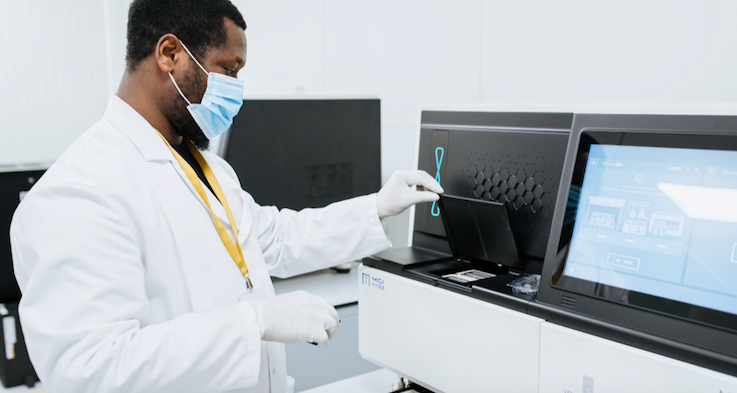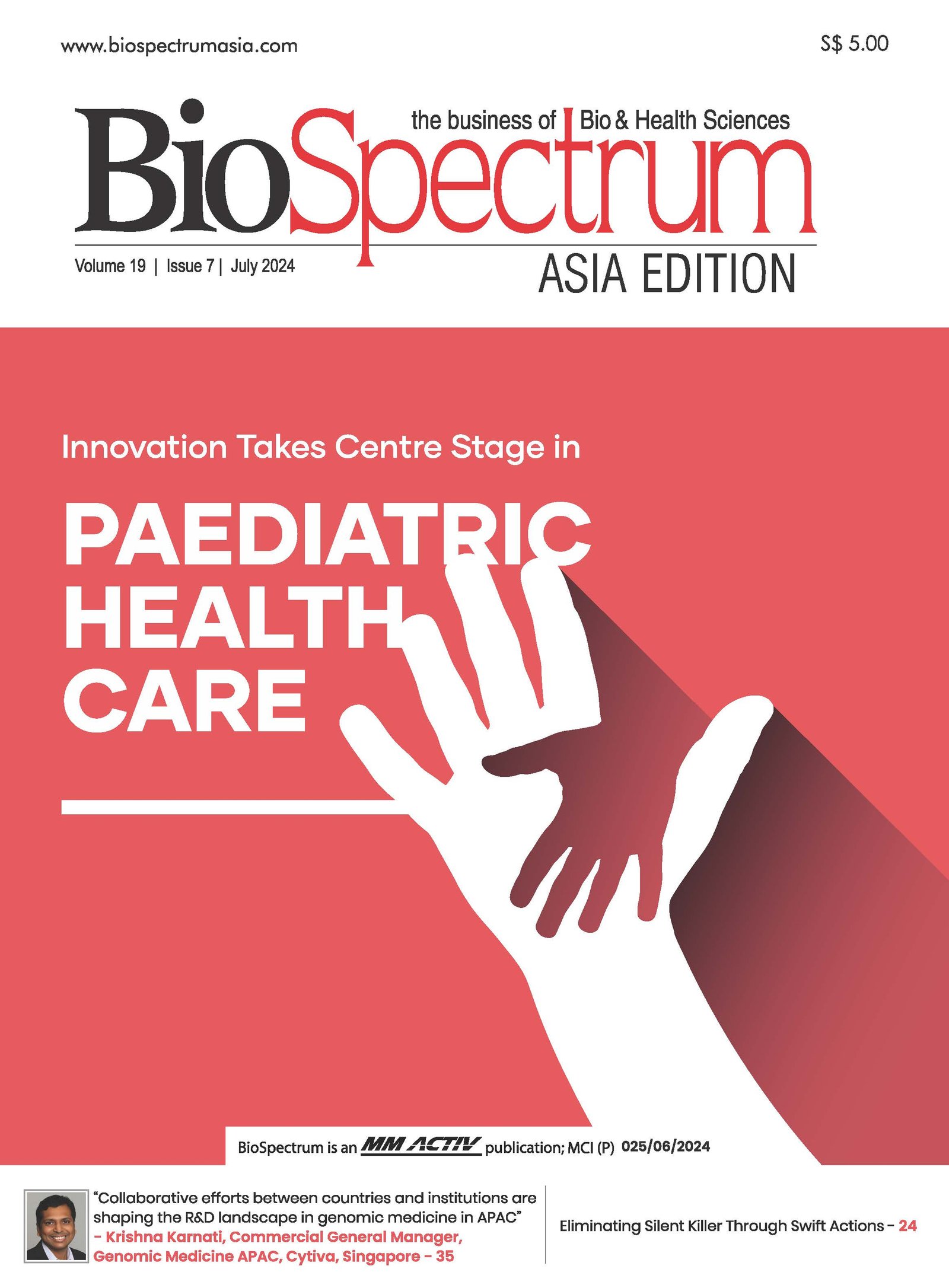Building Resilience in Pharmaceutical and Biologic Manufacturing
31 October 2022 | Opinion | By Marcelo Tarkieltaub, Regional Director, Southeast Asia, Rockwell Automation
Technology and automation are driving the next generation of manufacturing, and smart manufacturing adoption will continue to accelerate

The pandemic exposed the depth of challenges that manufacturers are facing, including supply chain disruption, skilled worker shortages, and risk mitigation. Environmental, social, and corporate governance (ESG) has emerged as a critical component of the business. Meanwhile, the combination of data-driven insights, speed, and automation is more accessible than ever. As a result, smart manufacturing is rapidly gaining traction.
For manufacturers, the pandemic put a spotlight on the urgency for digital transformation and processes automation to prepare for the inevitable. The State of Smart Manufacturing Report by Plex Systems, a Rockwell Automation company, revealed that smart manufacturing adoption accelerated by 50 per cent globally in 2021, and these new technologies are now solving the industry's critical challenges. Asia Pacific organisations (93 per cent ) view smart manufacturing as a crucial aspect to their long-term success, compared to North America (84 per cent ) and Europe, Middle East, and Africa (EMEA) (75 per cent ).
The skilled worker shortage, supply chain disruptions, and risk mitigation show up as key industry-level growth obstacles every year, but the reasons for each are ever-evolving. To solve these problems and other dynamics yet unknown, technology – specifically smart manufacturing – is the key. Drivers like the increase in plant-level data, greater machine and human connectivity, the growth of Industrial IoT, and the practical use and affordability of once-hyped technologies are changing manufacturing and expanding human possibility.
Technology and automation are driving the next generation of manufacturing, and smart manufacturing adoption will continue to accelerate. However, digital transformation is no easy feat and comes with multiple challenges. This is especially true in a pharmaceutical manufacturing setting.
The pharmaceutical industry has stringent regulatory compliance needs, highly complex processes, and sensitive ingredients needing sterile production environments. Biologic manufacturing has even stricter regulations to ensure drug safety and efficacy.
Flexible and highly efficient factories are needed to improve productivity and efficiency in pharmaceutical and biologic manufacturing. According to a Plex analysis report, Digital manufacturers benefited from a 26 per cent increase in revenue performance index (RPI) and a 27 per cent increase in their profit performance index (PPI), whereas non-digital manufacturers experienced decreases of 9 per cent in RPI and 2 per cent in PPI.
Let's uncover the current state of smart manufacturing, the challenges manufacturers are facing, and the expectations for the future of the industry.
Key challenges in pharma/biotech manufacturing
Pharma and biotech manufacturers are operating in an increasingly competitive and fast-moving environment, and face multiple challenges including:
Inventory mismanagement: Many companies still use manual processes for routine operations, including inventory management. This leads to incorrect charging of materials and consumables on the shop floor and sometimes a shortage of materials within the warehouse and manufacturing facilities.
Human error: Many companies still use paper batch records for documentation of their processes. This can lead to data entry issues, missing signatures, incomplete information, etc. Minor errors such as increased turnaround times, unnecessary spending, and errors can quickly lead to confusion and potentially even jeopardise patient health. Human error can cost pharma and biotech businesses from $25,000 to $55,000, topping $1,000,000 or more per error if product loss is involved.
Long R&D processes: The pharmaceutical industry is characterised by capital-intensive and lengthy R&D processes. Improving, standardising, and automating processes can result in higher overall R&D efficiency.
Regulatory inspections and compliance: Pharmaceutical companies face the challenging task of complying with regulations across all aspects of their business in every market they operate in. The pressure to stay compliant with regulations drives pharma and biotech manufacturers to increase transparency and adopt innovative digital technologies.
A Manufacturing Execution System (MES) connects, monitors, and controls complex manufacturing environments and data flow on the factory floor. They help pharma manufacturers overcome these challenges and enable them to move away from paper-based operations. Further, modularisation of software, which can allow incremental technology adoption, is gaining traction as manufacturers look to become more agile in the face of adversity.
This can help businesses improve plant productivity, track and synchronise plant resources, and empower business systems and people with real-time information about what is happening across production. This reduces risks, time to market, and production costs and increases process efficiency and product quality.
Many companies are wanting to address the gaps and overlaps between their Information Technology (IT) and Operational Technology (OT) domains which can be an obstacle in the production process and cost overruns for solution deployments. Using an MES, companies can develop an IT/OT partnership, helping drive the company’s global serialisation programme.
This will enable the company to steward a global solution to provide regulatory-mandated traceability for all final product units. The solution converges IT and OT domains by integrating vision systems, high-speed control, event management systems, and Enterprise Resource Planning (ERP) systems.
Benefits of MES
An MES plays a fundamental role in the digital transformation process of pharmaceutical and biotech organisations. Here are some of the benefits:
Automating real-time data recording: Using an MES, pharma and biotech manufacturers can automatically capture real-time data on every process step, enabling standardisation of processes and speeding up decision-making.
Digitisation of production processes: MES eliminates the need for paper-based Standard Operating Procedures (SOPs) or records and equipment and material labels, significantly reducing inaccurate, unreliable information, human error, and delayed implementation of corrective actions.
Simplified production: MES centralises production data in context, and quickly and easily recognises deviations from performance targets to understand the root cause of operational issues.
Operational excellence: Implementing an MES not only increases the efficiency of the production line by maximising asset utilisation and reducing scrap and waste; it also helps increase production quality and customer satisfaction.
Review by exception: MES enforces controls throughout the manufacturing process to ensure that each batch is produced within a controlled set of parameters space. This is especially important for critical processes and quality attributes. Utilising an MES means reviews can focus on exceptions rather than the entire batch record.
Regulatory compliance: MES solution provides better visibility and transparency of manufacturing processes and promotes regulatory compliance. This enables businesses to take control of their vendor compliance, product safety, genealogy, and traceability with better reporting and documentation.
Improved cybersecurity: MES applications are embedded with multi-layered protection systems committed to reducing risk, safeguarding data, and monitoring threats. This ensures security at the data source and protects data integrity throughout the value chain.
Finding right MES
As manufacturers embark on their digital transformation journeys, finding the right MES partner will make all the difference. A well-versed MES provider can help design and implement customised solutions to meet the manufacturer's or manufacturing facility's specific needs. Pharma and biotech manufacturers will also be able to leverage the MES vendors’ understanding, experience, and in-depth knowledge of industry-specific products and shop-floor processes.
The right MES software can be a game changer for pharma and biotech manufacturers, providing greater visibility and transparency into manufacturing processes, promoting compliance, lowering operating costs, and improving productivity and quality.
Technologies that were once viewed as over-hyped and unlikely to contribute in a meaningful way are now deemed vital to success. Cloud, industrial hardened devices, and process automation are helping companies overcome challenges and the trend is expected to flourish with the evolving industrial revolution.
Marcelo Tarkieltaub, Regional Director, Southeast Asia, Rockwell Automation












